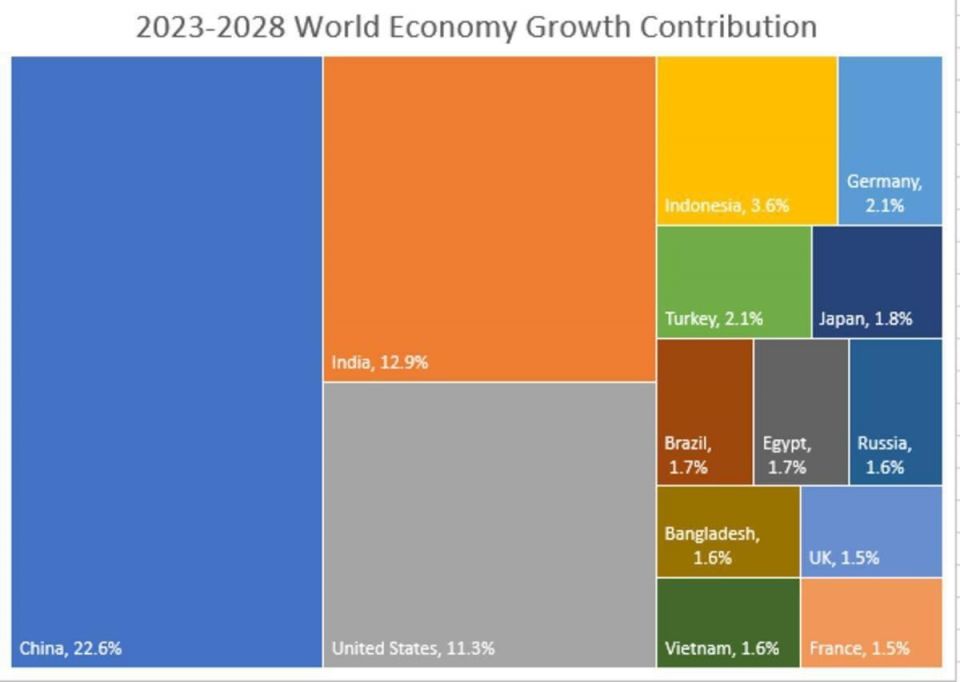Twenty nations are predicted to account for 75% of global growth, with the top four being China, India, the US and Indonesia

Bangladesh will contribute more to global growth than European giants France and the United Kingdom over the next five years from 2023-2028, according to the International Monetary Fund.
Through 2028, the country's share of global gross domestic product growth is anticipated to be 1.6% of all growth, compared to the UK and France at 1.5%, according to the IMF's World Economic Outlook's April forecasts.
The emergency lender anticipates that once higher interest rates start to pinch, the global economy will grow by approximately 3% over the following five years.
The outlook for the next five years is the worst it has been in more than three decades, and the World Bank Fund is pushing countries to avoid geopolitical conflict-induced economic fragmentation and increase productivity.

In total, 20 nations are predicted to account for 75% of global growth, with the top four being China, India, the US and Indonesia.
Germany, Japan, the United Kingdom and France are anticipated to be among the top 10 contributors, despite the Group of Seven countries making up a lower portion of the total.
The latest World Economic Outlook forecast that growth will slow from 3.4% last year to 2.8% this year. Growth is then expected to accelerate to 3% next year.
Risks to the outlook are heavily skewed to the downside, with heightened chances of a hard landing. In a plausible alternative scenario with further financial sector stress, global growth would decelerate to about 2.5% in 2023.
Looking further ahead, growth is expected to remain around 3% over the next five years. This baseline forecast of 3% five years ahead for 2028 makes it the lowest medium-term growth projection since 1990, and well below the average of 3.8% from the past two decades.
The anaemic outlook reflects the tight policy stances needed to bring down inflation, the fallout from the recent deterioration in financial conditions, Russia's war in Ukraine and growing geoeconomic fragmentation.












